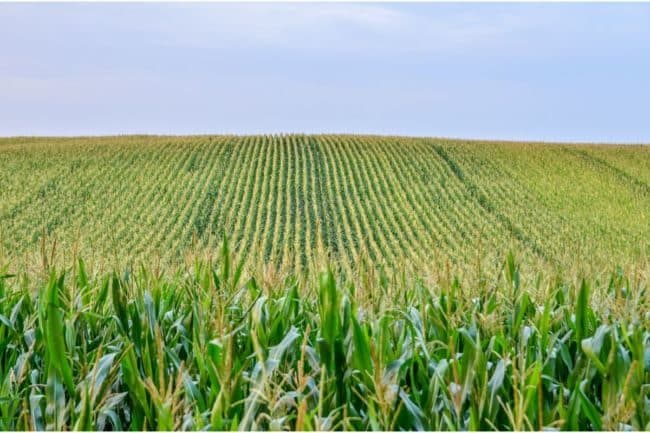
While the US will not set yield records in corn this season, far better results than initially anticipated could still make it a top-two or top-three crop, according to Rabobank’s North American Agribusiness Review.
In October, the US Department of Agriculture (USDA) lowered yield estimates against the backdrop of media reports indicating that crops coming off the field were better than expected. Rabobank said much about the 2022-23 crop year has been atypical.
Indeed, the USDA’s own field surveys point to record-high ear counts, while farmers surveys were mostly submitted before their ‘surprisingly good’ harvests began in earnest,” the review said. Both “open the door” to late-season upward adjustments in yield.
Increases across all demand categories will mitigate stock buildup, Rabobank said, but early indicates suggest these may be overly optimistic. US corn exports are estimated to increase 22%, equivalent to 10 million tonnes, according to USDA. Sales for the 2023-24 crop are up just 8% through early October.
USDA is projecting a 3.3 million tonnes increase in corn use for ethanol, but the US Department of Energy is projecting a 2% decrease in ethanol output.
Rabobank added that even the modest increase of 1.4 million tonnes in feed demand may be difficult to attain given flat poultry production, modest declines in hog and dairy cow numbers and 5% decline year-on-year in beef cattle on feed.
Compared to corn, there is very little room for soybean yields to surprise to the upside, Rabobank said. Brazil will likely loom large again in the year ahead, it said, with record yields and record production.
Meal prices have found support, with outstanding sales through the first week of October, proceeding at their fastest pace in five years and 50% above a year ago.
“This is driven by sizable increases in purchases from Southeast Asian buyers, but also noteworthy increases from Canada and Ecuador in the Americas,” Rabobank said.
Biomass-based diesel oversupply played a central role in soy oil futures shedding a dime from nearby contracts over the past two months, it said.
“Weak demand and the prospect of an increased rig count in the US suggested there could be further room to fall for crude and vegetable oils, though this picture us now clouded considerably by conflict in the Middel East,” Rabobank said.
Better yields are driving production increases for most classes of wheat, including hard red winter, hard red spring, soft red winter and durum wheat. The exception was white wheat, which showed a decline in yields and area harvested Rabobank said.
US imports are continuing at a record pace, projected to be the fourth largest import volume over the last 20 years.
